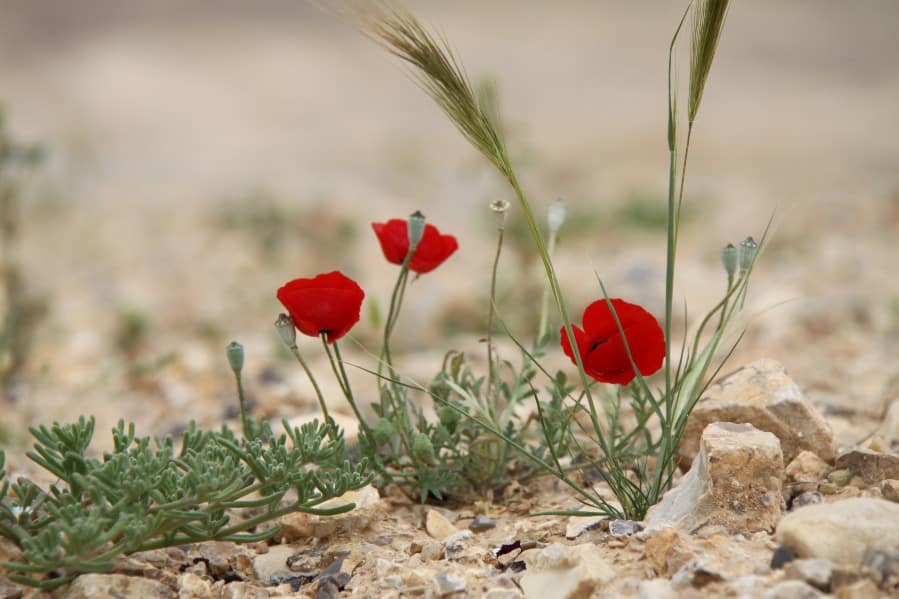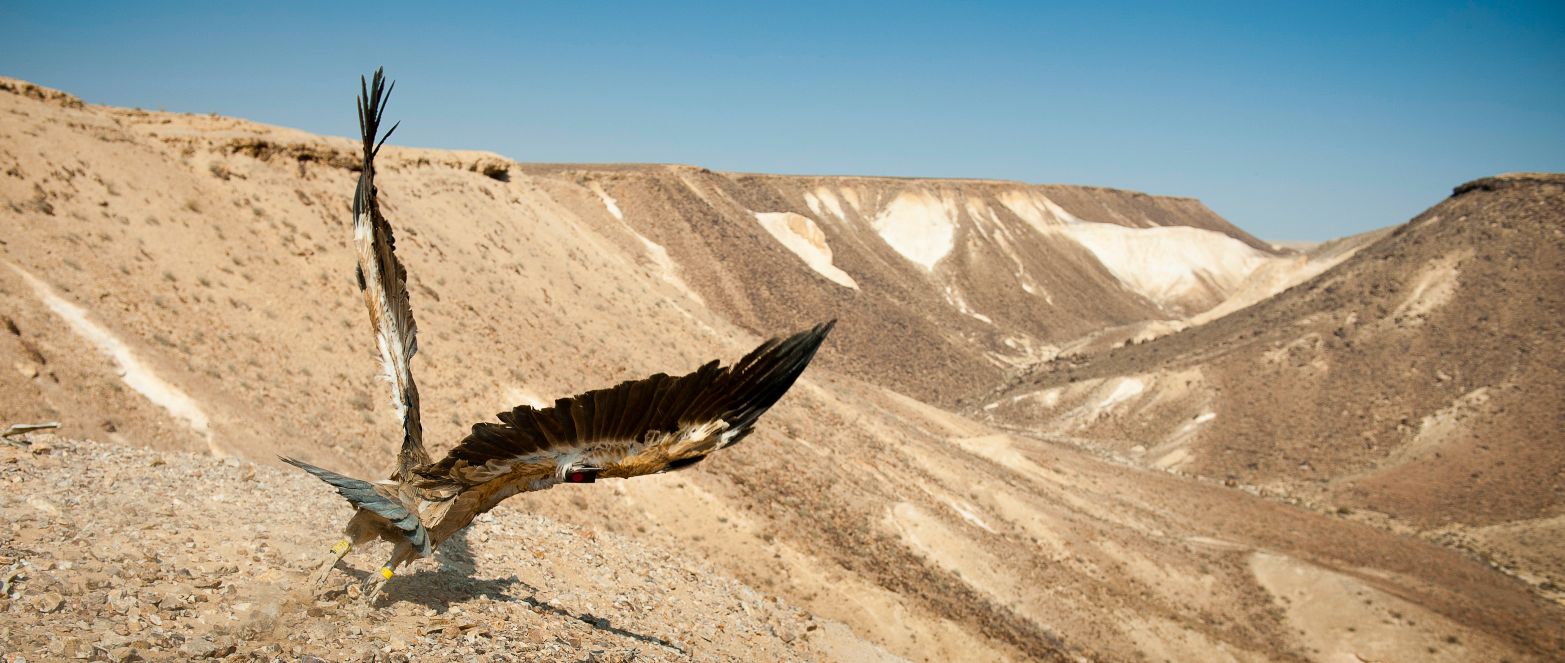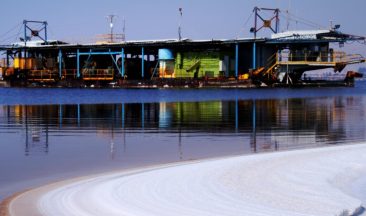Wise use of the soil before and after mining, installing special “homes” for a rare species of bats, and planting fields of wildflowers — these are some of the ways to sustain the biological diversity at mining sites.
The unique voice of the young Swedish girl Greta Thunberg at the UN, giving youth demonstrations across the world, demanding that heads of state take drastic measures to preserve the planet, huge fires in the Amazon that horrified so many — for many months it seems that issues related to the environment have been gathering momentum and increasingly (even if inadequately) occupying public opinion.
Growing awareness of humanity’s devastating effects on the environment have become the concern of governments and organizations worldwide, which for years have been taking steps to prevent the damage to biodiversity. This term refers to the variety of ecosystems on Earth, their interactions with each other and with the environment. Undoubtedly, our very existence depends on the biodiversity that surrounds us, yet at the same time there is no doubt that improved lifestyles and accelerated development harm biodiversity.

A number of companies are joining governments in making declarations of commitment and taking various steps toward implementation. As a company that operates in many countries, ICL has also committed to minimizing the environmental damage that has been caused or could be caused by its activity. The company has been cooperating with various academic bodies and NGOs in this field, in an attempt to sustain and rehabilitate biodiversity wherever operations take place, as well as to learn more about the issue.
Katie Robinson, External Affairs Communications Officer at ICL UK, mentioned that the company operates in diverse climatic regions, each with its own environmental challenges. “Although it is known that southern, warm and dry areas are more prone to extreme, unexpected climate events, nature can adapt to changes; but with inconsistent, swift changes, adapting is harder. As a company, we can help to strengthen the regions in which we operate in different ways.”
You may be interested in:
Restoring nature with full force
So, as part of the Dead Sea development program, run by Israel Nature & Parks Authority and ICL, the two organizations are implementing a plan to eradicate invasive species: fauna and flora that are not native to the region — often brought in by humans — and have spread to a degree that radically affects the biodiversity of the area. In the Dead Sea region, ICL has been working to uproot invasive plants species, and to plant local vegetation in its place.
Another example of ICL’s biodiversity activity is the preservation work done at Swan Lake (the Ashalim salt flat, south of the Dead Sea). Swan Lake was initially created by rising groundwater in some of the company’s mining operation sites. The lake soon became a replacement for the salt lakes that had been in the area but had dried up as a result of land use and agriculture, industry and residence. In recent years, the lake has been filled with reasonably good-quality water year-round, which has resulted in extensive vegetation. At present, the lake serves as a resting spot for migrating birds, as a winter habitat for some bird species, as a nesting place for a wide variety of birds, and as an attraction for birdwatchers from Israel and abroad. ICL Dead Sea has taken many measures to preserve the lake. In addition, in 2020, a joint initiative of ICL Dead Sea, Sodom Valley residents, and the Nature & Parks Authority is to construct a lookout point at a safe location near the lake, which will allow undisturbed observation of the diverse animal life.
ICL Rotem, in cooperation with the Ministry of Environmental Protection, the Nature & Parks Authority and the Ben Gurion University has developed award-winning, advanced mine reclamation methods. Prior to the mining activity at a certain spot, the company stores the nutritious soil layer for future reclamation actions, as well as the soil layer beneath it. At the end of the mining phase, the company returns the soil to its place according to its natural formation, taking various precautions to prevent future erosion and performing other actions to restore the biodiversity.
In Spain, ICL Iberia is continuing to preserve and develop the ecological corridor at Tordell Stream, a seasonal stream near the town of Súria. The stream separates the nearby urban area from the mining facilities at the Súria mine and serves as an ecological corridor in the disturbed area. Unfortunately, the flow of the stream has decreased over the last decades. Ditches were dug on its banks, waste water was discharged into the stream and invasive species proliferated. To sustain the stream’s environmental and social potential, an ambitious reclamation project was undertaken by ICL and others. The first activities included clearing of invasive vegetation from long stretches of the stream and planting over 1,000 local plants in their stead.
At ICL Boulby, the company has been implementing a biodiversity management plan for over a decade. “We are proud to say that, thanks to our actions, the woodland surrounding our Boulby facilities has the richest biological diversity in all of North-East England,” says Robinson. The company’s site is one of the few areas in which the brown long-eared bat can spend the winter. To sustain the bats’ environment so they can stay during the cold months, company volunteers have installed specialist nest-boxes for shelter. Fields of wildflowers are harvested and re-seeded annually within the company’s grounds and as subsequent areas are introduced, it has drawn in a important specie of butterfly named the Dingy Skipper, which are considered high priority for preservation in Britain.
Robinson noted that the company will continue to implement its biodiversity preservation program and will search for new ways to develop it. “We are actively seeking opportunities to share our experience and knowledge with others around the world. We will continue to work to preserve the biodiversity of the regions we are active in, in an attempt to maintain the balance between environmental needs and our needs as a business organization.”







